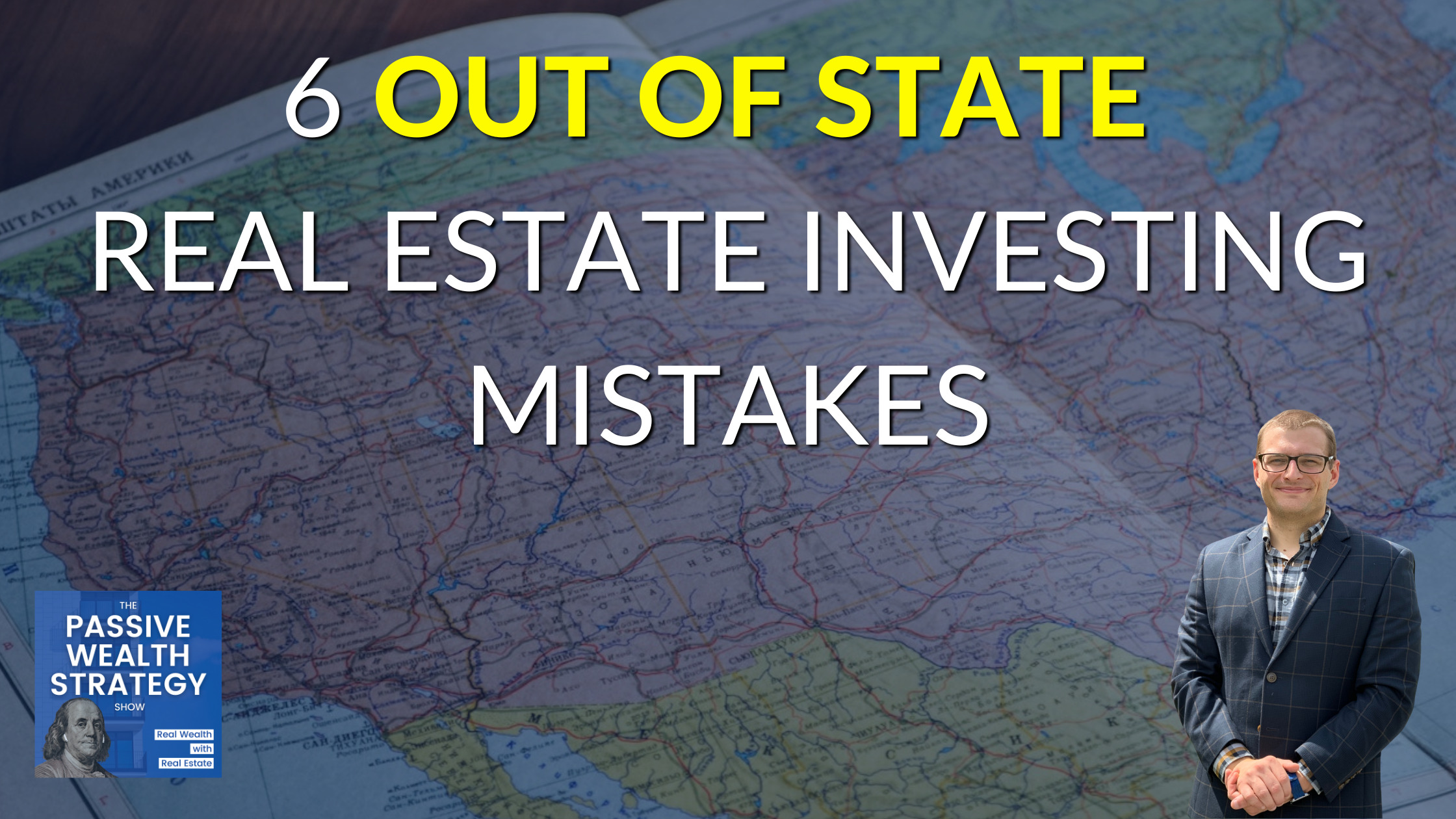How To Create Online Business Courses with Cindy Nicholson
In this digital day and age, you can’t just sell yourself through words – you have to prove it. There’s no better way to do that than establishing your authority in your field by creating an online course. By teaching your expertise, you’re leaving prospects in no doubt that you know what you’re talking about and you’re the best at what you do. However, many entrepreneurs don’t know how to get started with creating an online course. That’s where Cindy Nicholson, aka The Course Whisperer, comes in. Cindy is an expert in helping you take your online course to the next level. Join Cindy in this episode and learn how to create an online course that can be a tool for creating passive income and growing your business.
---
How To Create Online Business Courses with Cindy Nicholson
Our guest on this episode is Cindy Nicholson. She wants to help you take your online course to the next level. As a former high school teacher and corporate trainer, Cindy has spent thousands of hours designing training material. Too often entrepreneurs get stuck between being the inspiring thought leader in their world and translating that vast expertise into a profitable online course. Reaching a broader audience and earning a passive income simply eludes entrepreneurs who are new to online courses. That's become Cindy Nicholson's calling aka "The Course Whisperer." This is a great way for busy professionals like you or experts in your field to generate another stream of income with online courses and in-demand topics. Cindy, welcome to the show.
Taylor, thank you so much for having me.
I'm happy to have you with us. We're getting started thinking about putting together an online course, maybe we built one and we're not making any sales. We got it up on one of the many course sites, but the income is not there. We're convinced the product is good. There's got to be demand for this topic. Whatever your area of expertise might be, how can we increase our sales right off the bat and get started marketing our courses better?
The most important thing when you're creating a course is that you make sure that your course is solving a problem. You don't want to create a general course about investing. You want to create a course, something that solves a specific problem that your audience is having. First and foremost, the name of your course really identify what problem you're solving and is it specific enough to attract the people that you want to go into the course? That's what I often see from a content perspective if people are having difficulty with their sales, how are they positioning their online course? How are they positioning in terms of how is it solving a problem? People have to have a problem big enough that they're willing to spend money on and that's why you want to make sure that you're solving a specific problem.
Almost nobody is right about everything on the first shot. Click To TweetThat's the first thing. The next thing is making sure that your audience needs it. Is the problem big enough that they want to take a course on it? If they find that they aren't getting sales, maybe it's a matter of going back to the audience that you're trying to sell to and find out if that's something that's top of mind for them. Pulling the audience and finding out what they're struggling with is maybe the next step in terms of finding out whether or not this is something that they're interested in. I find if it's not selling, there's obviously marketing strategies and building an audience. From a content perspective, it’s asking your audience how it is that you can help them specifically solve the problems that they're having in whatever it is they're doing.
Imagining that we're already experts as a professional and say something related to IT, Information Technology. We want to earn an extra income off of that expertise by selling a course somehow related to that. If we want to get started finding maybe a specific niche inside the IT education space or a particular topic that we can teach about. What are some steps that we can take to start narrowing that down in the first place before we even pick a particular topic or problem that we want to solve? How are we doing that polling? How are we going to collect that data?
There are three steps I recommend. When you're first starting out to try and figure out or narrow down the topic of how you want to create a course. The first thing is to go to Google keyword search and do a bit of research to find out what people are going online to search for solutions to problems. You can in Google keyword search input a bunch of different things that your clients may be searching online for and see how popular they are. That's the first thing. Are people going online to look for a solution to the problem? Google Keyword is a great tool to do that.
The next step I recommend is checking out if there are other courses that are being sold similar to that topic. You can pop over to say, Udemy. You can go to Lynda. You can go to Coursera. There's a number of platforms that host online courses. You can check out and see if there are other courses out there that are along the same lines. The thing is it's good news if there is because that means that there's a market for it. That means that people have a problem and they're willing to take their wallet out of their pocket to pay for it.

The third step is asking the audience. If you have an audience of your own to go to them directly. You also can go into Facebook groups and ask them what they're struggling with. You can go into forums. You can go in and do a little bit of research by seeing what questions people are asking. Even if you go into Google, put in your topic and you include the forum in the search line, that will give you some information as to what questions people are asking. That work at the beginning, often people get an idea of a course that they want to create, they're all going forward without taking the time to validate the idea.
If you go through those three steps at the beginning, number one, it gives you more confidence that when I put the time in to create this course, people are going to buy it. Number two, the intel that you're going to gather through that process is going to pretty much write the course for you because it will tell you all the questions you should answer as part of your course. That's the three-step process I recommend when people are debating whether or not it was a good idea of a particular course idea that they're thinking of.
I have a background in engineering and a day job in sales. Something that I noticed moving from engineering to sales and doing some marketing with previous employers was that engineers and technical people have this idea of putting up a website, build a website and they will come. That's all you need to do. As far as marketing these courses go, especially if we're talking to technical professionals, for example who don't have sales and marketing background. Not that there's necessarily anything wrong with that. We all come from different backgrounds, but getting that first basis of learning the marketing of this and what we need to do to drive traffic to the course. Do we need to put it up on Udemy and the other usual suspects and build our own little website and let it go? How are we driving traffic to the course to get it purchased and get eyeballs on it?
This is where the leg work happens at the beginning is building the audience of people within that target market that you're looking for. There are a bazillion different ways you can go about to build that audience. As you're building this audience, another strategy, even if you are thinking of creating a course is to do a beta launch. Before you create any type of content at all to offer it for sale and at a reduced price, "I'm planning on creating a course that's going to solve this problem, are you interested in doing that?" This will give you an idea as to what interests you are going to get once it's ready to go live. If you can get a certain number of people into this beta course, that's pretty good validation. You need to be doing the legwork at the beginning, building the audience, depending on how you go about doing it. Whether it's podcasting, whether it's participating in Facebook groups, however, you want to build your audience is the first step. Floating the idea of a course to them is a good strategy to validate whether or not you think it will sell once it's ready.
Building your brand and finding your niche is key to making as much money as possible. Click To TweetYou have to get out, hustle, build the audience and make it happen. As far as some of the numbers here, if we're busy professional thinking about trying to earn an income on the side, get another stream of income going that maybe we're not trading hours for dollars for on the side thing. We want it to be worth our while. What are some of the numbers of maybe how many courses we need to sell at what price point? Where's the sweet spot of what we should be aiming for? It's Kevin Kelly or somebody that has the concept of 1,000 true fans. Are we aiming for 1,000 true fans that'll pay a $200 for a course or we want to go with a bigger audience, smaller dollar value? What are the pros doing it these days?
As you can imagine, it can run the gamut. You can go for a strategy to get a high number of people at a low price point versus a smaller number of people at a higher price point. It depends on your marketing strategy, what your preferences and the amount of time that you're willing to commit to creating the course. For example, at a higher price point, you probably might have a higher investment of time whether or not you have weekly calls or you give some access to, whether it's through a Facebook group or something like that. If you've got a $2,000 course or something like that, I have found that the courses out there usually have access to the expert in some form or fashion.
If you're willing to share yourself up for a certain period of time as you're offering your course, you can go for higher price points. Therefore, you don't need as many people to sign up for the course. That being said, if that doesn't fit how you run your business, you can create more of an evergreen course where it's going to be at a smaller price point, say between $250 and $500 with the idea that you're going to have a higher volume of people taking the course. There's less investment of your time in terms of participating in the course. It comes down to the business model of the individual as to whether or not where they want to fit on the grand scheme of things.
As far as the amount of time it's going to take us to say, somebody who reads this, has been thinking about it, commits during our discussion and says, "I'm doing this." How long is it going to take them? How many hours are they going to have invested until they have a quality course posted that is starting to turn out income?

I liked the words that you were using from the perspective of a quality course. As you can imagine, the barrier to entry to create online courses these days is low. It's quite easy to get it done, which means that there are a lot of courses out there that aren't well-done and there are some other courses that are well-done. For signature courses, which I've helped my clients design, are the cornerstone to their online course offering. It's usually about five modules long with about five lessons within each module. It depends on how much time you have each week to put together. I'd say about 80 hours. Depending on how much time you have each week to put it together, usually, I would say around three months to put it all together. If you're ready to do it, you've got all the time in the world to do it, you can bang that out in a month or so. If you want to do it with quality, it's going to take a little bit more time than if you're going to rhyme off a bunch of videos and post them online.
I find that in setting out to do things like from my perspective, starting a podcast, I did watch an online course. It gave me a bit of a blueprint on some of the ideas to get started. You learn along the way by doing it. It's a path to walk down in a sense. Where is the path for starting an online course? Do you have a course for that? Are there courses out there? If we have no idea what to do and we know our outcome is going to be a cashflow-generating course that we have finished, where can we find that blueprint, that path to get there?
I have this great expertise, how do I learn to share it with the world? There are a number of online courses out there to teach about online courses. The one thing that I've found with most online courses, they miss the boat on the actual development of the content itself. They talk a lot about technology. They talk a lot about marketing, but they missed the meat of it, which is designing the course itself. I personally don't have an online course yet because I work mostly one-on-one with my clients. Either I do it with them or I do it for them, but I can walk you through the process that I take my clients through in terms of the soup to nuts, in terms of creating the content itself.
We've talked about it already in terms of making sure that the course is validated. You've got a course idea. Step one is to validate the idea and make sure that once you put all of that work into creating the course that people are going to buy it. Going through those three steps is usually the first step in terms of creating that online course. From this research, from this validation process, step two from this research that you've done is to figure out what the outcome is. What is the result? What is the problem that you're going to solve for your clients? You want to be specific.
The best investment you can make is by investing in yourself. Click To TweetWithin figuring out what the outcome is, figure out who your clients, who the target market client is for that particular course. The more specific you can be, the better it's going to be for your students. Once you know the specific result that you're going to get, the point Z, you want to figure out the steps that somebody needs to take in order to get that result. That's creating the course outline. If you're at A, you need to get to C, what are the milestones? What are the steps that they need to take in order to get from where they are to the final results? Those milestones are the steps in your outline. That's the outline of your course.
Number one is to validate. Number two is getting your outcome. Number three is creating that course outline. Within that course outline, you're going to have these milestones. You can drill down within each of those milestones and ask yourself the same question, what steps do they need to take in order to get each of these individual milestones? Those will give you almost the lessons within each milestone. I call them modules or milestones. That gives you that overall big picture of how the course is going to be structured.
Once you have gotten to that point, you are now ready to create the content. Rather than diving in, creating the PowerPoint slides and creating all the content, I recommend that people start with creating the worksheets or the activities. If we want to get them to get the results, we want to make sure that they're practicing, applying and using the information that they're learning all the way as they go through the course. I recommend doing those worksheets and those activities before you get into the content because that will help make sure that you're streamlining the content and only including content that's important. That's the next step after the course outline is to create those worksheets. Once you've got the worksheets done, you can go and create the content.
You can decide how you want to deliver it. I have found that the most popular way is a combination of having video and some slides, whether it's PowerPoint or keynotes or what have you. A combination of those two things to deliver the information has been the most common way that I've seen it delivered. It's a matter of creating those PowerPoint slides and writing out your script of what you want to say during those lessons. Once you've got the content created, now it's a matter of recording and editing those videos that you've created and it's a matter of getting the technology in place. You've got to put that content somewhere and it's a matter of getting that content out into the internet to see who you can help with that problem you're solving.

It's that whole process helps people take this big idea and distill it down into manageable pieces for the students to learn from. One of the pieces of advice I always give people because one of the biggest mistakes that I see in courses in terms of what people are doing when they're creating courses is they provide way too much information in those courses. What I help people with is pulling back and making sure that they only include information that's going to directly get the result that the students are looking for and not anything more. Otherwise, they'll realize the content doesn't apply to them and so they won't finish the course or they'll never come back to it. Including contents that are directly applicable to getting that result that you're doing for the client is of the utmost importance when you're putting a course together.
I like how you're validating the idea early on because I think so many people, especially people who keep going back to the technical thing, but people who don't have a sales and marketing background. I have such a great idea. Everybody is going to want to buy this. I'm like, "Hold your horses. You need to prove and save yourself some time potentially in the future. You need to prove that this idea is marketable and that people will pay money for it,” because almost nobody is right about everything on the first shot. You might have the seed of a good idea and by talking with your focus groups and everything, you can turn that seed of an idea into a fully-fledged marketable concept. You refine it and learn more about what people will pay for.
We touched a little bit on becoming an expert and being perceived as a thought leader, building basically a book of contacts that you can market this to in a way or building a way to market it. From my perspective, that's critical because one example that popped into my head is for years I thought I wanted to go to business school and one of the things I looked at was online business school at UNC essentially to put it out there. It's a great business school, one of the top in-person business schools. They have an online version. The online version is the same price as the in-person version. It's $100,000 for an online course.
There's interaction with the professors and everything, but they're selling a series of courses and a degree for $100,000. Granted they have a fantastic brand, they're perceived as thought leaders in the world of business education, at least as far as MBAs go. That allows them to sell a full program for $100,000 that you get a degree at the end of. In my mind, it's no different, especially having gone through a few of their sales pitches going down to UNC, meet some of the folks and talking with them and everything. It's a very sales-heavy business. The sky is the limit when it comes to these things. Building your brand and finding your niche is key to making as much money as possible essentially and then driving up the price of your courses if that is indeed the goal.
The whole being specific as you can is important when it comes to creating courses, both from a marketing perspective, because you reach a number of people that can hone in on specific problems that people are solving but it also improves the quality of your course. If you've targeted your niche, the content that's included in that course will apply directly to those students that are taking your course. They're going to love you for it because everything that they learn within the course is going to apply directly to them. They're more apt to complete the course. For me, that's some of the best marketing out there. If you have people who take your course, they finish your course and get the results that they’re looking for, that speak volumes in terms of the marketability of that course. There's a number of courses I've taken that I haven't gotten all the way through. I haven't taken another course from that individual. The ones that I have are the ones where I'll go back to.
Cindy, what is the best investment you ever made?
The best investment that I've ever made is investing in myself. What I mean by that is by investing in a mastermind program that I am a part of. Every week, we get together and we talk about our businesses. Between the four of us, we bounce ideas off of each other. After every call, I have actionable tips and ideas of what I can do in order to move my business forward. That investment of a mastermind have been super valuable to me.
I know so many successful people that invest large sums of money, tens of thousands to hundreds of thousands of dollars in powerful masterminds. They all speak highly of that in principle. There's a lesson there. What is the worst investment you ever made?
Probably the worst investment I've ever made was a snap decision on hiring a coach. It wasn't necessarily that I don't believe in coaching. I totally believe in coaching. The worst investment was not taking the time to fully understand what I needed from a coach or to vet the coaches that I was talking to. I ended up hiring a coach that was definitely not a good fit for me. It didn't work. It ended up being my worst investment because I didn't get any ROI on it at all. It was not taking the time to research, decide and choose the best coach that I can get for what my needs were at the time.
What is the most important lesson you've learned about investing?
I used to be a financial advisor. I used to help a lot of people with investing. The most important lesson around investing that I've learned or when I've been talking to my clients is not to ask what the best investment is, but to ask the question what the best investment is for me right now. It's rather than trying to look and search for the hottest thing, but more to look and see what fits who you are, what your goals are, and what you feel good about investing in. Starting with yourself, that whole KYC, Know Yourself before you decide on what you're going to invest in.
Cindy, thanks for everything. How can our audience get in touch with you and learn more?
Thank you so much. You can find me at TheCourseWhisperer.com. That's where most people reach out to me or you can find me on LinkedIn under The Course Whisperer or Cindy Nicholson. If they have a niggling in their mind about wanting to create a course, I'd be happy to chat. If you wanted to bounce some ideas off, we could talk about how you can add this as part of your business strategy.
Thank you for reading. If you're enjoying the show, please bring someone in and invite someone into our crowd that could use this information about increasing their wealth, growing their streams of income, and generally making more money with less time. That's what we're all about here. I appreciate you being with us. I look forward to talking with you. Take care.
Important Links:
About Cindy Nicholson

In short, Cindy helps amazing entrepreneurs turn their incredible content into effective and engaging learning material. So often, small business owners are experts in their field but struggle with how to translate their vast knowledge into an engaging, life-transforming online course. They know they want to scale their business and reach a broader audience (and earn some passive income along the way) but need some help to make it happen.
That’s become The Course Whisperer, Cindy Nicholson’s, calling.





